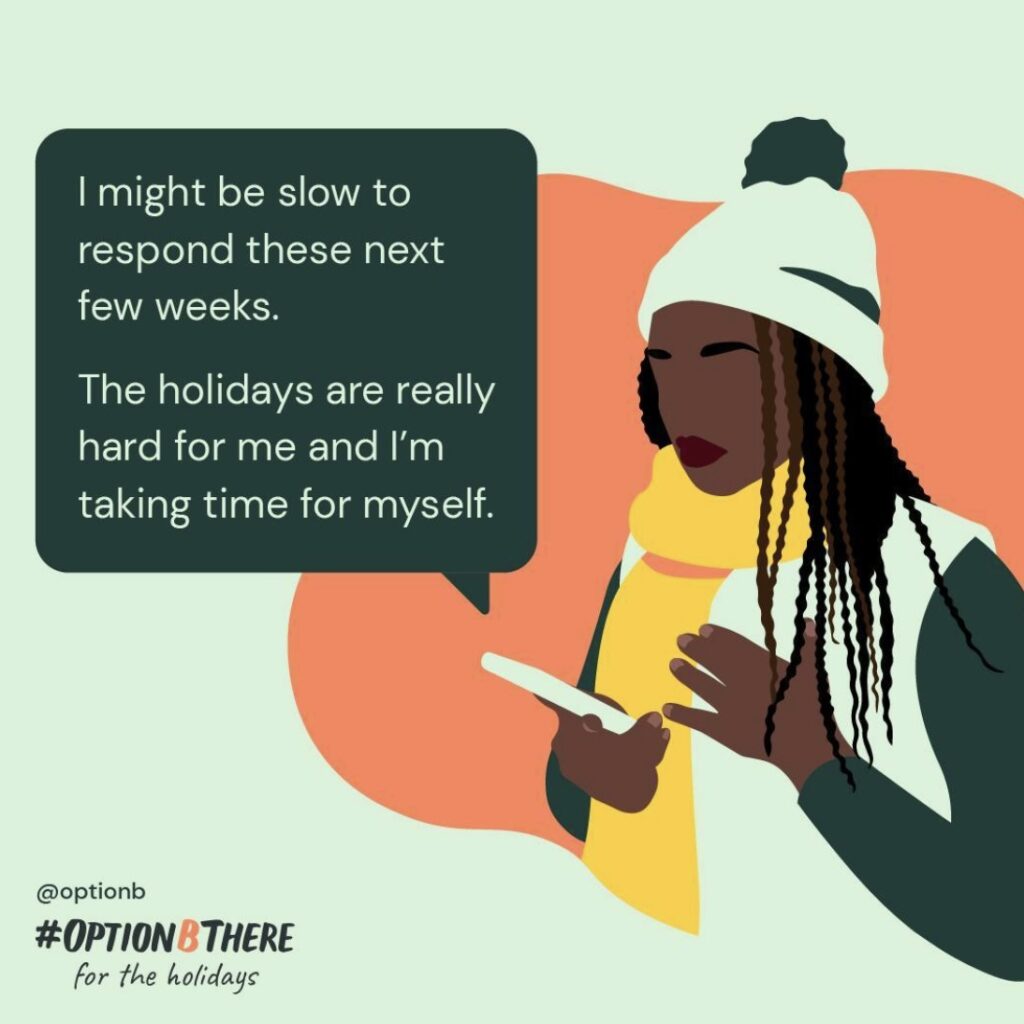
Post-Holiday Blues is affecting many as our normal daily routines change during the holidays and it can be hard to return back to regular day-to-day life. Take time for yourself to process the adjustment.
This articles goes in depth on why we feel Post-Holiday Blues and how our brain processes the changes.
Article by:
Medically reviewed by:
It’s the first full week of January, which means it’s back to reality and business as usual. For some, it’s a major relief. Even with all its good tidings and cheer, it’s a financially, physically, and emotionally demanding time of year. According to the National Alliance on Mental Illness, 64% of people report being affected by holiday depression, and it’s most often triggered by financial, emotional, and physical stress of the season. But for others, coming down from the high after the ‘most wonderful time of the year’ (and the inevitable return to work) can bring on a bout of the post-holiday blues too.
Also known as post-vacation syndrome, stress, or depression, this slump can hit hard after a period of intense emotion and stress. Post-holiday blues share many of the same characteristic symptoms of an anxiety or mood disorder: insomnia, low-energy, irritability, difficulty concentrating, and anxiousness. But unlike clinical depression, the distress is short-lived rather than long-term. Though much greater attention is often given to depression that occurs during the holidays, the condition isn’t all that uncommon. So, what’s responsible for this glaring lack of post-holiday glow?
There’s relatively little research on the subject, but consensus among experts is that the adrenaline comedown is the main culprit. Princeton, NJ-based clinical psychologist Dr. Eileen Kennedy-Moore suggests that the abrupt withdrawal of stress hormones after a major event, be it a wedding, an important deadline, or the holidays, can have a profound impact on our biological and psychological well-being.
But that’s only one part of the equation. The contrast effect, a form of cognitive bias where perception of differences is enhanced or diminished as a result of exposure to something with similar characteristics, but different key qualities, is also at play. It’s essentially the brain’s way of trying to restore order while adjusting between markedly different experiences. And, half of the month of December is basically one big departure from your normal routine.
Unless you have a three-week vacation in August or some other big diversion during the year, the holidays may be the only time regular life is interrupted. Even if your holidays weren’t so merry and bright, the brain exaggerates the realities of day-to-day life, making the return to the mundane seem disproportionately more anxiety-inducing and depressing than it actually is.
According to Dr. Melissa Weinberg, a research consultant and psychologist specializing in well-being and performance psychology, it’s a sign of healthy psychological functioning. “It’s just one of a series of illusions our brain fools us into believing, in the same way we think bad things are more likely to happen to others than they are to us. Somewhat ironically, the capacity to fool ourselves every single day is an indication of good mental and psychological functioning,” Weinberg explains in The New Daily.
“So, whether we did enjoy our holiday, and whether we’d rather be on vacation than back at work, our brain is wired to make us believe that we did, or that we would. In doing so, we pay the emotional cost for a well-enjoyed break, and we experience a comedown toward our baseline of well-being.” In other words, you pay the same emotional toll for a crappy vacation as you do for an amazing one.
The considerable weight of navigating difficult situations and relationships and keeping your cool during the holiday events is another possible factor in post-holiday depression.
According to psychiatrist and author of “Thriving as an Empath,’ Dr. Judith Orloff, putting up a false front and feigning happiness can be incredibly draining.” This idea is shared by psychotherapist Dr. Richard O’Connor, who has a theory that we “arm” ourselves during the holiday period as a coping mechanism to deal with stress and difficult emotions and situations
The sugar and alcohol-fueled diets many of us thrive (or rather survive) on during the holiday period could also be a culprit. Alcohol is a widely recognized depressant and research has also linked junk food to depression. Unsurprisingly, after a near-month long period of overindulgence, we might not be feeling our best.
This is going to be different for everyone. But if after awhile you still aren’t looking forward to upcoming events, or you continue to remember the holidays with sadness rather than fondness, it’s time to talk to a mental health professional.
Working yourself out of a post-holiday funk requires putting some extra emphasis on the basics of physical and mental well-being and adjusting expectations:
Quality sleep, regular exercise, and a nutrient-dense diet—these healthy lifestyle cornerstones are recommended by experts to boost mood and manage depression symptoms. Between late-night festivities, sugary snacks and long to-do lists, these practices often fall to the wayside during the holiday season. Re-establishing them as a regular and non-negotiable fixture in your routine is essential for getting back on track if you’re struggling emotionally.
Social interaction is a critical component of enhanced well-being. Now that the holiday parties have petered out, an empty calendar might feel a bit depressing. Filling up your planner with activities you enjoy will give you something to look forward to and help keep contrast effect at bay. It’s easy to withdraw when you’re feeling down. Reaching out to and getting face time in with friends and other people you care about—even when you don’t feel like it—can also provide a much-needed boost.
Post-holiday blues won’t stick around forever. In the meantime, cut yourself some slack. Don’t beat yourself up for feeling the way you do and take the time you need to find your footing. If symptoms do persist, consider consulting a specialist.